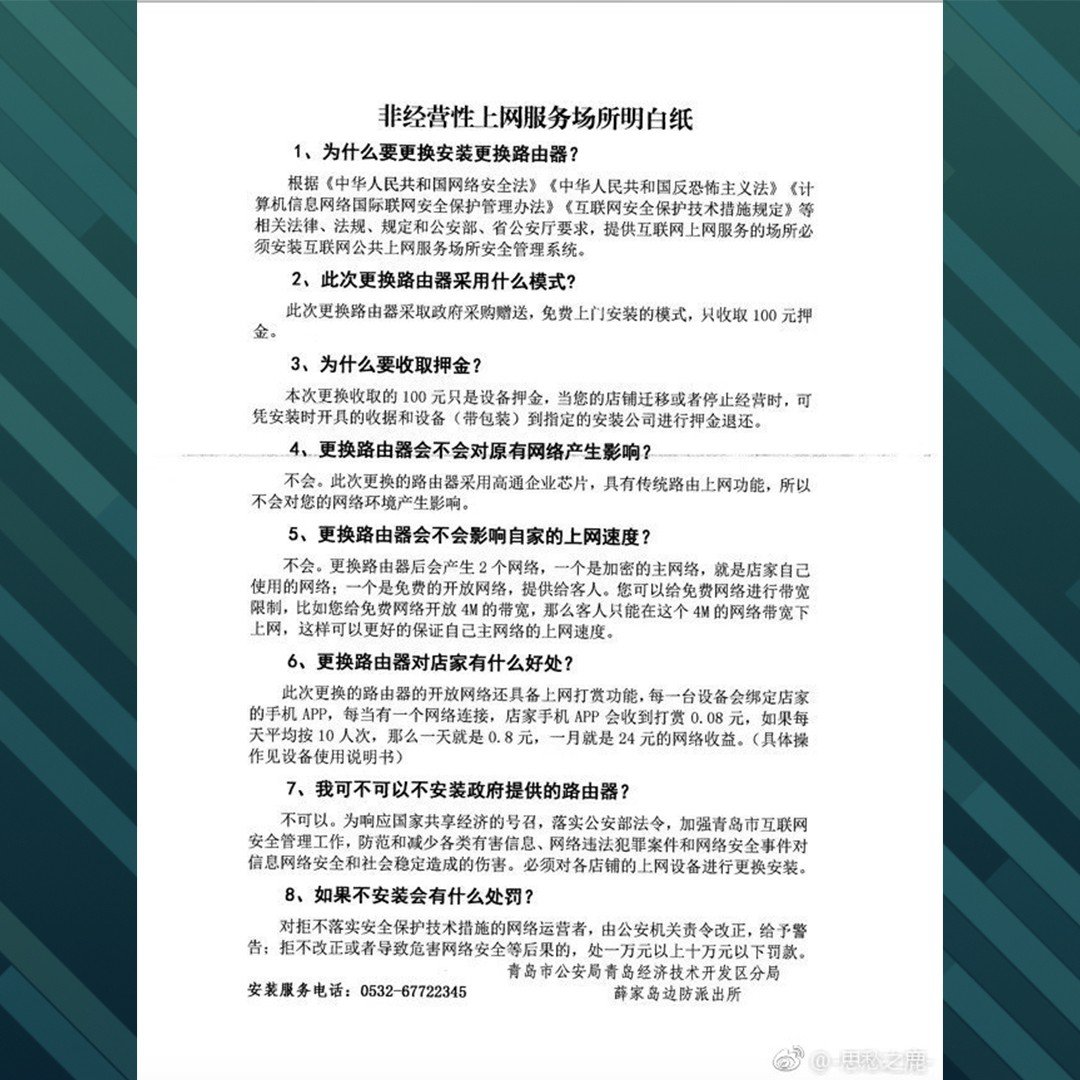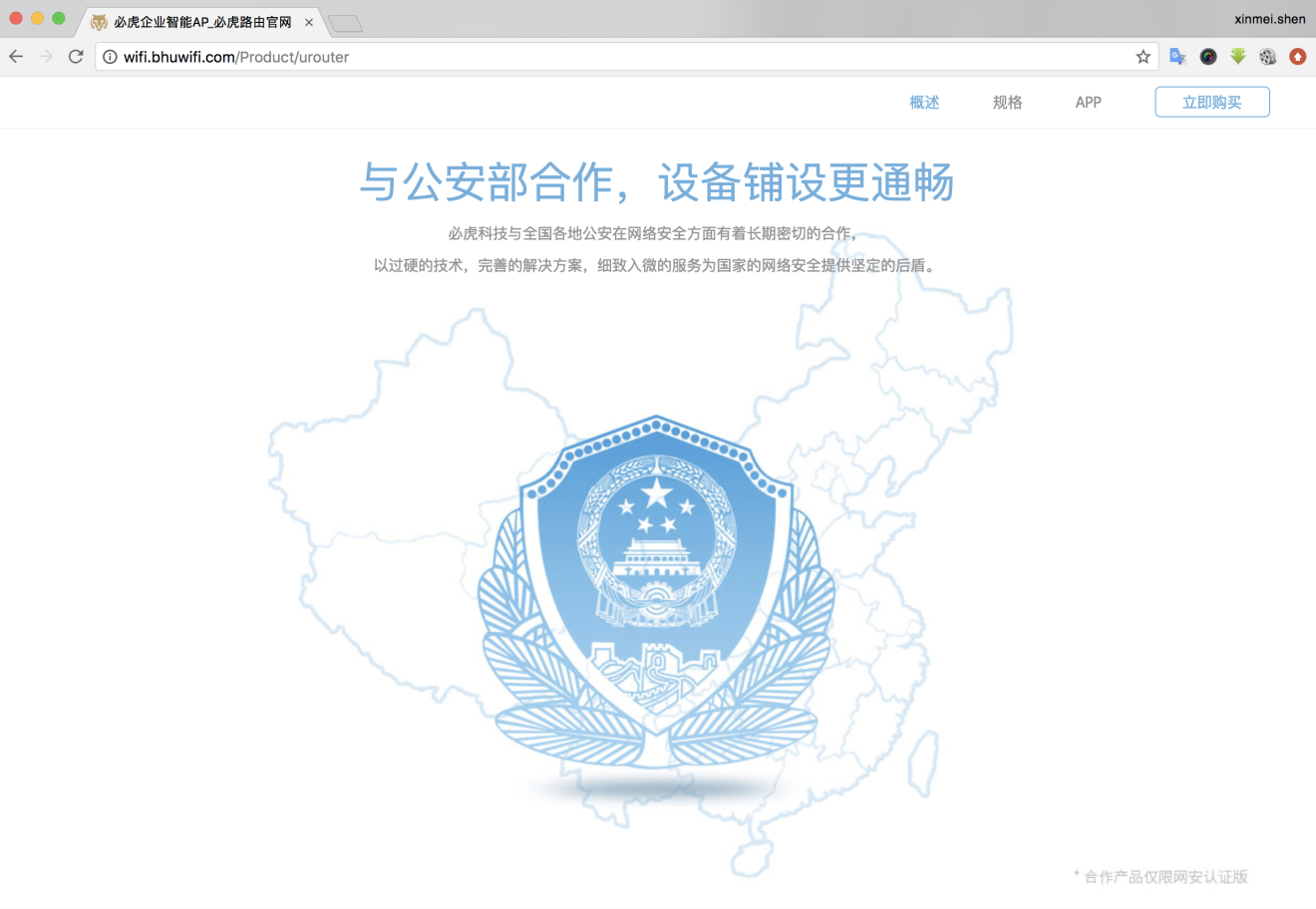
Police in Qingdao tell shops and restaurants to use a government-approved Wi-Fi router
Refusing to do so will get you a fine of up to over US$15,000
Shops and restaurants in one Chinese city found themselves with an unusual order from the police: Switch to a government-approved Wi-Fi router or face fines.
Weibo users said public places with Wi-Fi hotspots in Qingdao received a notice telling them to switch routers to “improve Qingdao’s internet security management.” Any establishments that refuse will face fines of up to 100,000 yuan (US$18,589).


Another strange feature of the router is that it’s supposed to pay money back to shops and restaurants that use it. The notice from Qingdao police says business that use it will get 8 fen (just over one US cent) for every user that connects to the router every day. It’s not clear who exactly pays this money, and calls to BHU were unanswered.
For more insights into China tech, sign up for our tech newsletters, subscribe to our Inside China Tech podcast, and download the comprehensive 2019 China Internet Report. Also roam China Tech City, an award-winning interactive digital map at our sister site Abacus.

